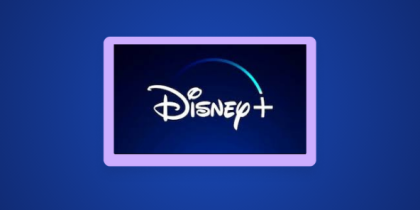CCS (Credit Collection Services) has a legitimate payment portal system as CCSPayment. The questions are raised when you receive a call or a letter from the company, wondering if it’s a scam.
Thinking whether to respond to these calls or letters is always concerning. Let’s see how to determine if the debt collector is legit and how to protect yourself from the scam.
What Is CCSPayment?
CCS Payment, better known by the name of Credit Collection Services, is a third-Party debt collector located in Norwood, Massachusetts. They collect debts for a variety of large creditors like banks, telecommunications companies, and utility companies. Major reasons you may hear from CCS:
- Credit card defaults
- Previous medical bills
- Unpaid student loans
- Outstanding utility charges
Is CCSPayment Legit?
Yes, CCS Payment is a legitimate company specializing in debt collection. They have been licensing and registering debt collection for a long time, abiding by state and federal rules as the Fair Debt Collection Practices Act (FDCPA) with no history of any fraud or unethical business practices.
It is always safe to visit their website and submit payments through their portals. CCSPayment often reaches out to its customers, contacting people on behalf of companies, and recovering unpaid debts.
Moreover, there is always a chance of risk of someone impersonating CCSPayment, manipulating you to send money. Therefore, it’s important to see if the person contacting you is truly affiliated with CCSPayment. Look for these signs to verify if the CCSPayment is legit:
- You receive letters, on official letterhead, from the company.
- They include the original creditor and the correct amount owed.
- They send real payment options.
- You can confirm them using the Better Business Bureau (BBB) or their official website.
How to Tell If a Debt Collector Is Legit?
You need to check the authenticity prior to paying the debt collector to protect yourself from the scam. Here are the major steps you need to follow to make sure the debt is legit:
Debt Validation Letter
Debt collectors must send you a validation letter 5 days prior to contacting you, as recommended by the federal law. This letter must include the amount owned, the name of the original creditor, and the rights for you to dispute the debt.
Verify the Contact Information
Look for the company’s name, contact number, and address. Ensure that it aligns to what is listed on the official sites like Better Business Bureau (BBB) and Consumer Financial Protection Bureau (CFPB).
Avoid Sharing Sensitive Information
A valid debt collector won’t ask for your Social Security Number, bank account number, or credit card number up front over the phone.
Be Cautious with Pressure Tactics
If someone threatens arrest or jail time or uses profanity, this is a sign that you should hang up. These are violations of the FDCPA and are likely examples of a scam.
Why Did I Receive a Letter from CCSPayment?
You might receive a letter from CCSPayment because they are trying to collect a debt from a creditor for you. This may be for an unpaid bill related to a credit card, medical bill, other utility charge, or a loan.
The letter you received is a general collection notice which is required by law to let you know the debt, the original creditor, and your rights to dispute or validate the claim.
Red Flags of a Debt Collection Scam
Scammers sometimes impersonate debt collectors to pressure people into paying fake debts as a scam. Knowing the warning signs can help you recognize these tactics and avoid becoming a victim. Be aware if you receive any of these signs from a debt collector:
- No prior written notice is given.
- You are requested to pay via cryptocurrency, gift cards, or wire transfers.
- Basic details are not provided by the debt collector.
- Suspicious or spoofed numbed by the caller ID.
- Immediate legal actions threatening.
What to Do If You Are Contacted by the CCSPayment?
If you are contacted by the CCSPayment, it could be due to one of the reasons mentioned above. Here’s how you should respond:
- Don’t panic and avoid making payments immediately.
- Ask for the written validation letter of the debt.
- Compare with your own statement or credit report.
- Question errors in writing within 30 days of receiving the validation letter.
- Negotiate if needed. You might be able to come to an agreement either to plan a way to pay the debt or to settle on the debt.
- Record everything – keep copies of your letters, emails, and records of calls.
How to Protect Yourself from Debt Collection Scams in the Future
Debt collection scams are increasing and scammers often pretend to be legitimate debt collection agencies to convince you to pay money owed on false debts. You can avoid becoming a victim with the right knowledge and caution! Use the following to protect yourself:
- Check your credit report regularly on websites like AnnualCreditReport.com.
- Freeze your credit if you suspect identity theft.
- Report scams to the Federal Trade Commission (FTC) as well as your state attorney general.
- Avoid opening unknown links in emails or texts.
- Check the Consumer Complaint Database through the CFPB for scam reports.
- Try using two-factor authentication for your financial accounts.
Frequently Asked Questions
Yes, CCS is a legitimate debt collector and licensed third-party collection agency.
Request a written debt validation letter from them, confirm their contact details, and check their credentials with real organizations, such as the BBB.
Yes, CCS Collect is a legitimate and registered debt collection agency located in the UK collecting debts on behalf of government and private sector organizations.
CCS Collect may attempt to collect from you more frequently, file negatively against your credit report, or proceed with legal action, depending on the type of debt if you ignore them.
Yes, Credit Collection Services is a legitimate debt collection agency. To confirm whether CCSPayment is legit, check for official contact details, verify the debt in writing, and ensure the company is registered and follows consumer protection laws.
Conclusion
CCSPayment is a legitimate company but it is still important to verify if your debt collector is genuine or not. Be cautious and verify before making any payment for the debt and protect yourself from future debt collecting scams.
Stay updated, know your rights, and don’t fall for imposters who pretend to be the real debt collectors. Take all necessary measures to check the authenticity of the collector and avoid making immediate payments.








